| Business |
| 2018's Top 10 Business News Stories | |
|
|
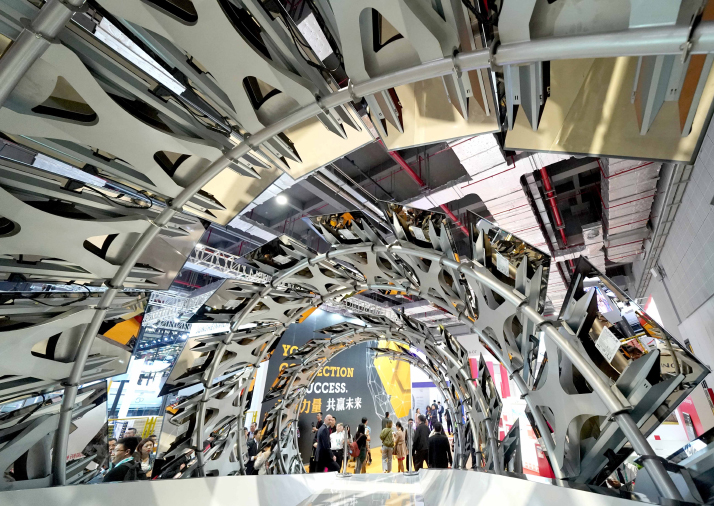 Glass which can both generate electricity and serve as a wall is exhibited at the first China International Import Expo by a German company on November 10 (XINHUA)
The China International Import Expo As the first large-scale national import exhibition in the world, the first China International Import Expo (CIIE) was held at the National Exhibition and Convention Center in Shanghai from November 5 to 10. The event marked a major initiative by the Chinese Government to support trade liberalization and economic globalization and open China's market to the world. It will promote economic and trade exchanges and cooperation between different countries, facilitate global trade, drive global economic growth and propel open-oriented global economic development. According to relevant data, the first CIIE attracted a total of 172 countries, regions and international organizations. More than 400,000 purchasing agents at home and abroad participated in the event and held many successful negotiations. The value of intended deals made at the event reached $57.8 billion annually, with the smart and high-end equipment exhibition zone seeing the highest turnover at $16.46 billion. 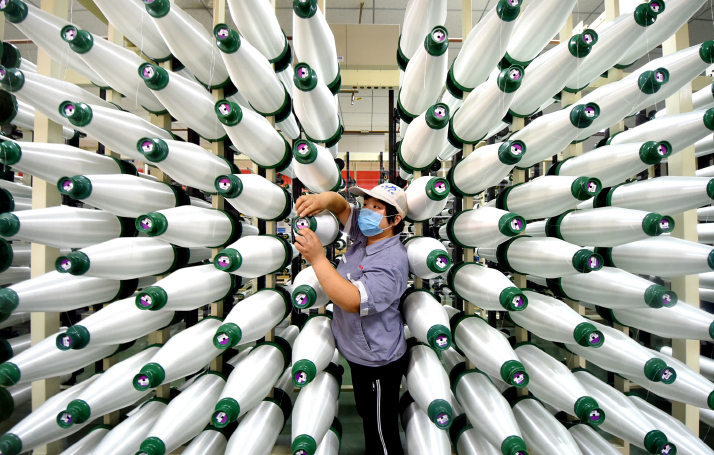 A worker at the workshop of a private enterprise producing new materials in Shiqiao Industrial Park, east China's Shandong Province on November 3 (XINHUA)
Strong Support for Private Enterprises President Xi Jinping highlighted the importance of the private sector in the domestic economy on several occasions from September to November. At a symposium on private enterprises held on November 1, Xi stressed that China needs to unswervingly boost the public sector and encourage, support and guide the development of the non-public sector. In the past 40 years, China's private sector has witnessed steady expansion and development. The country has fully recognized the important role the private sector plays as well as the problems facing the sector at the current development stage. All parties will make joint efforts to introduce favorable policies to reduce financing difficulties and costs for private enterprises and create a more favorable business environment.  People shop in an international duty-free mall in Sanya, south China's Hainan Province, on March 30 (XINHUA)
Hainan Free Trade Zone The State Council, China's cabinet, approved the establishment of the Hainan Free Trade Zone and issued the China (Hainan) Free Trade Zone General Plan on October 16, a major decision by the Communist Party of China Central Committee and the State Council with in-depth research, overall consideration and scientific planning in view of the situation at home and abroad. It also illustrated China's determination to open itself wider and promote economic globalization. 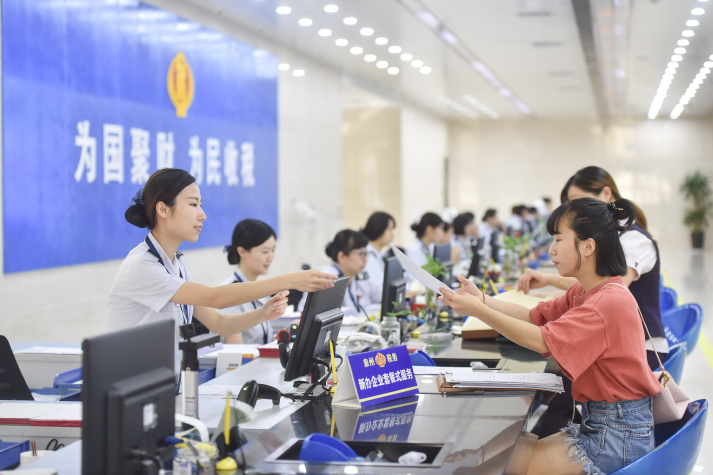 Staff members at a taxation bureau in Quanzhou, southeast China's Fujian Province, assist owners of newly established enterprises on September 13 (XINHUA)
Individual Income Tax Reform The newly introduced tax items included raising the minimum threshold of individual income tax to 5,000 yuan ($725) per month, imposing a comprehensive tax on certain labor income and optimizing the tax rate and structure. Moreover, the reform introduced special deductions for children's education, continuing education, serious illnesses, rent and first-time housing loan interest. The tax law reform presented comprehensive consideration for tax structure, taxation rules and other aspects. It was seen by many as the most forceful since the individual income tax law in China was first released in 1994. The new individual income tax law will take effect on January 1, 2019. 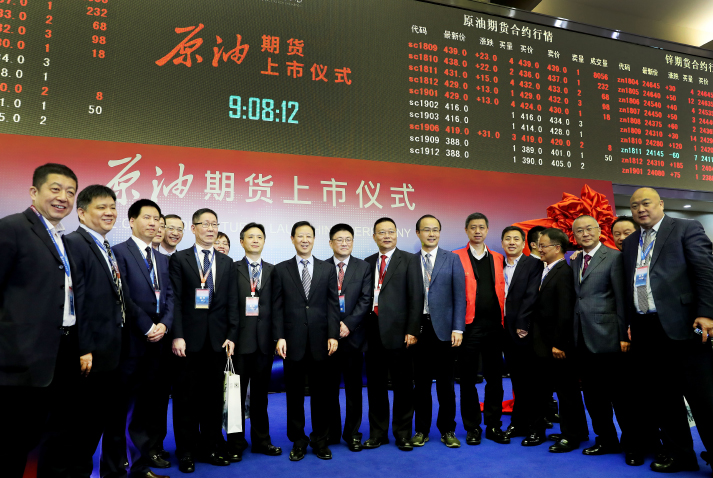 The ceremony for the official listing of Chinese crude oil futures at the Shanghai International Energy Exchange on March 26 (XINHUA)
Crude Oil Futures Listed Chinese crude oil futures, the first international futures product from China, were officially listed on the Shanghai International Energy Exchange on March 26. The operation of Chinese crude oil futures has closely followed international standards in terms of renminbi pricing, trading, delivery, settlement, risk control and market supervision. The crude oil market in China has a 30 year history. As one of the most important products in the futures market, crude oil futures will help improve the domestic crude oil market and contribute to the real economy. 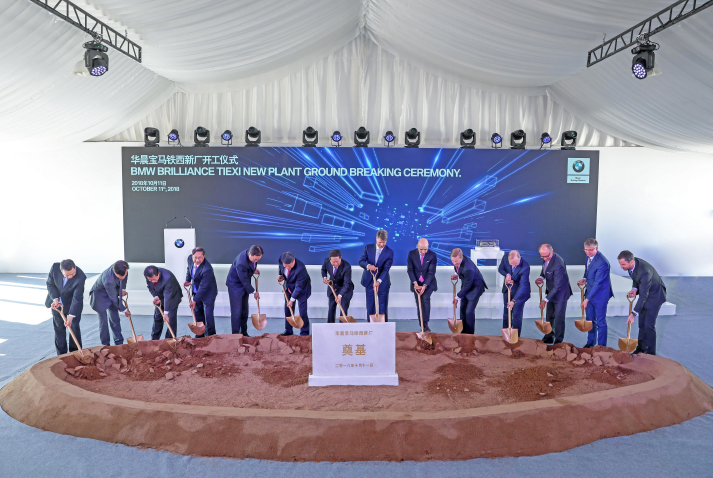 The groundbreaking ceremony for a new plant of joint-venture automaker BMW Brilliance in Shenyang, northeast China's Liaoning Province, on October 11 (XINHUA)
New Negative List The new negative list of foreign investment in China was officially released on June 28. The National Development and Reform Commission (NDRC) and the Ministry of Commerce jointly issued the Special Management Measures (Negative List) for Foreign Investment Access (2018), which took effect on July 28 and greatly lowered the market threshold. According to NDRC sources, the main features are as follows. First, the negative list will promote openness in an all-round manner. The restriction on market access has been eased in primary, secondary and tertiary industries, including finance, transportation, trade and commerce, professional services, manufacturing, infrastructure, energy, resources, agriculture, with 22 measures. Second, the list has been simplified from 63 items in 2017 to 48 special management measures. As a result, the foreign investment approval process will be further streamlined. Third, overall planning for opening up in some fields will be carried out. The 2018 negative list provides a roadmap and schedule of opening the auto and financial sectors, gradually widening the opening up and allowing transition in relevant industries. 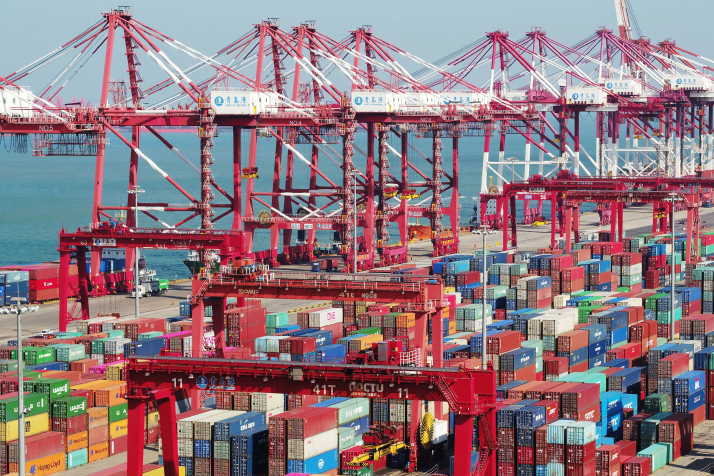 A container terminal for foreign trade in Qingdao, east China's Shandong Province, on November 8 (XINHUA)
Import Tariff Reduction China has reduced import tariffs of 1,585 items since November 1, accounting for about 19 percent of the total number of tax items in China. The average tax rate has dropped from 10.5-7.8 percent, with an average decline of 26 percent. In order to adapt to industrial upgrading and reduce the costs of enterprises, the items include many industrial products related to production and daily life. The tax reduction measures will reduce production costs of domestic enterprises, improve the capacity and level of supply of domestic enterprises and produce more high-quality and cost-effective products to benefit the public. 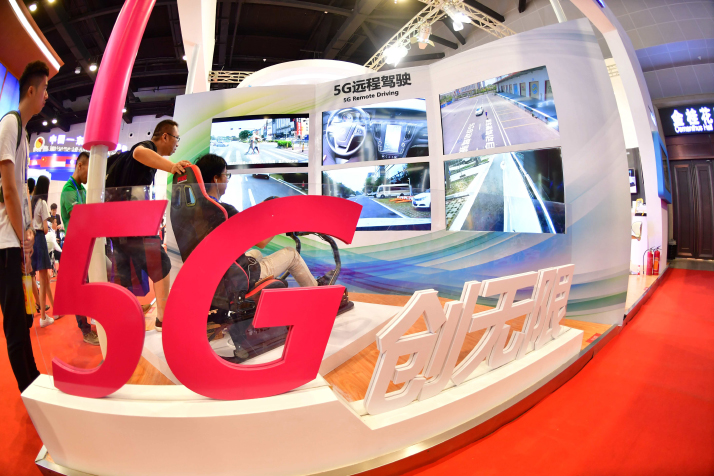 Visitors experience 5G remote driving at an exhibition in Nanning, south China's Guangxi Zhuang Autonomous Region, on September 13 (XINHUA)
5G Frequency Approval The three major Chinese telecom operators have obtained license approval for 5G trial frequency, suggesting that large-scale 5G trials will be launched nationwide. At present, China Mobile, China Telecom and China Unicom will continue to carry out 5G pilot projects in several cities. It is estimated that 5G will be put into commercial use in 2019 and fully commercialized by 2020. After the launch of 5G trials nationwide, 5G smartphones will become the first batch of products with commercialized 5G technologies. Apart from smartphones, the coverage of 5G networks will also significantly impact urban public transportation. 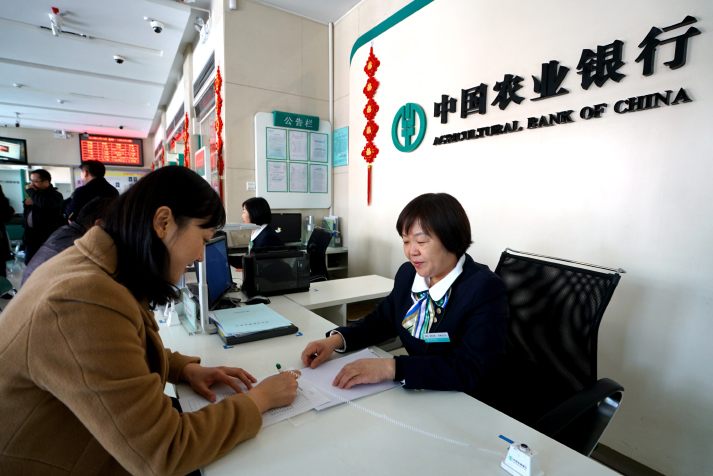 A customer conducts transactions at the Xiongan Branch of the Agricultural Bank of China in Hebei Province on March 19 (XINHUA)
State-Owned Capital Guideline
The Central Committee of the Communist Party of China and the State Council issued a guideline on improving the management of state-owned capital on June 30. The guideline aims to optimize the strategic layout of state-owned capital, enhance the vitality and control of state-owned financial institutions, and preserve or increase the value of state-owned capital. 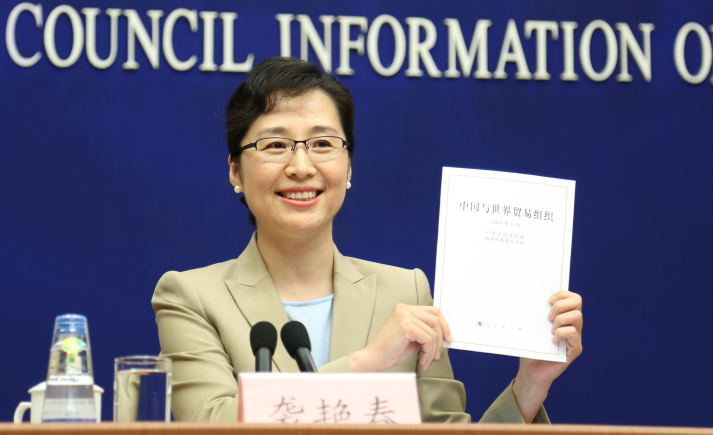 Xi Yanchun, spokesperson for the State Council Information Office, presents the China and the World Trade Organization white paper at a press conference on June 28 (XINHUA)
First White Paper on China and the World Trade Organization Released The Chinese Government issued the China and the World Trade Organization (WTO) white paper on June 28 to highlight China's practices to fulfill its commitment, explain the principles and policies of its participation in the multilateral trade system and clarify the country's vision and action to promote higher-level opening up. This is the first time that China has published a white paper on this issue as its contribution to global trade since its accession to the WTO has received positive remarks. The white paper points out that China has firmly supported the multilateral trading system, participated in various WTO affairs and urged the organization to pay more attention to the concerns of its developing members. China has also opposed unilateralism and protectionism and worked with other members for the WTO to play a greater role in economic globalization. According to the white paper, China has pursued a mutually beneficial and win-win strategy of opening up, followed the WTO free trade concept and fulfilled its responsibility as one of the major powers through opening itself to the world. Copyedited by Rebeca Toledo Comments to dengyaqing@bjreview.com |
|
||||||||||||||||||||||||||||
|
